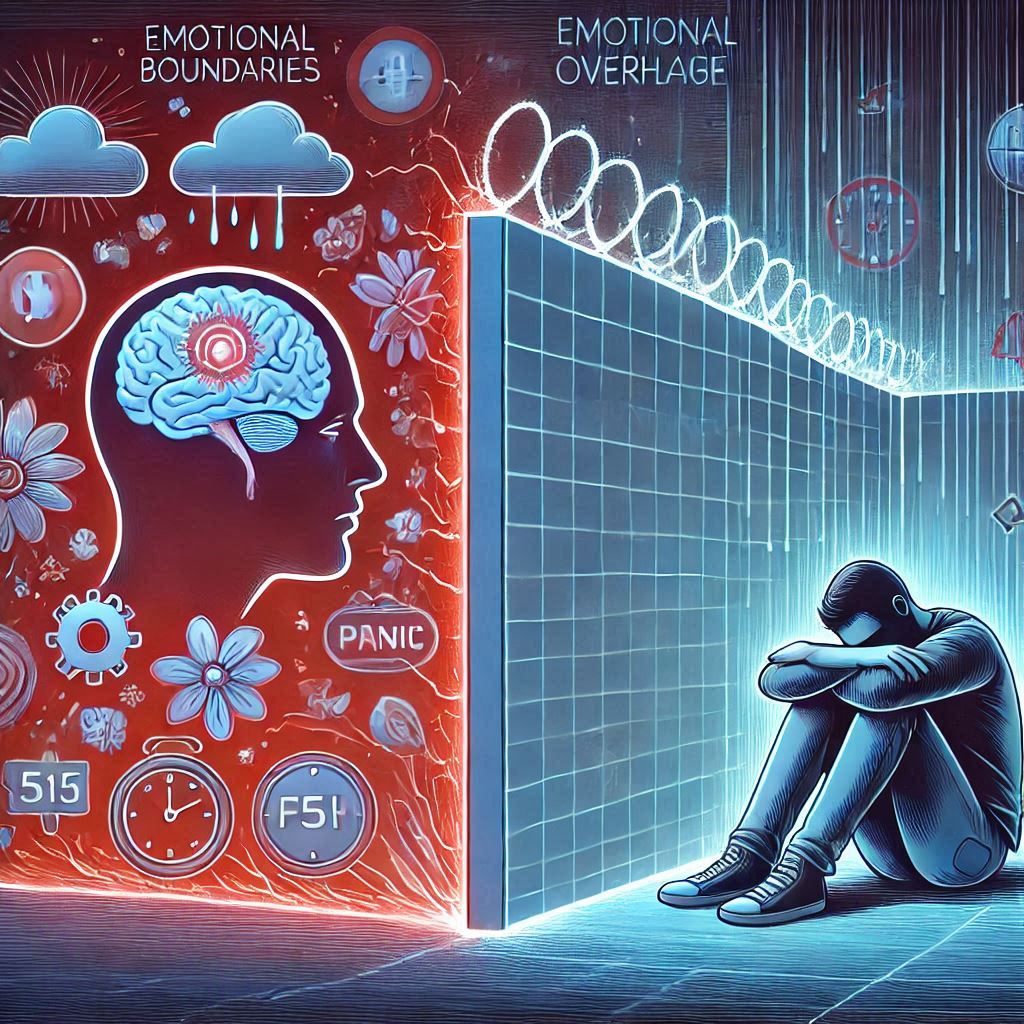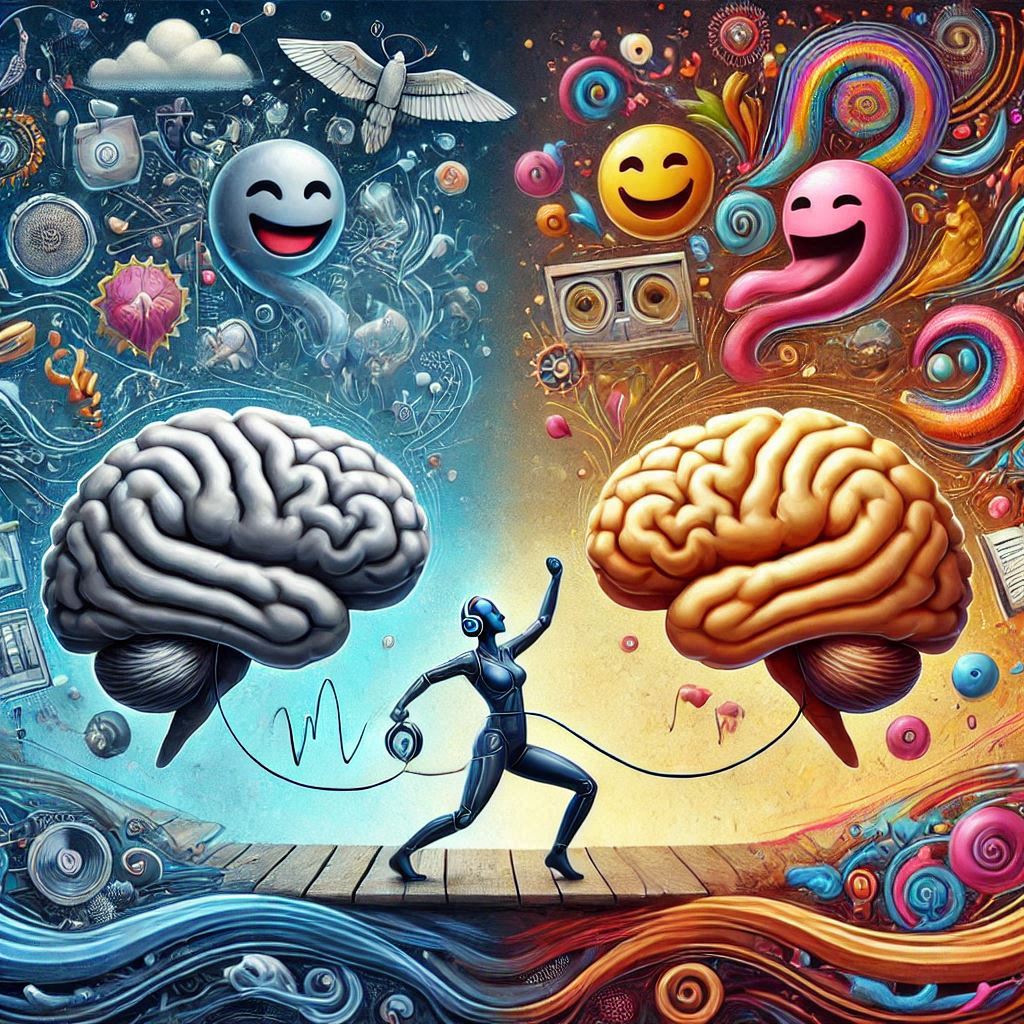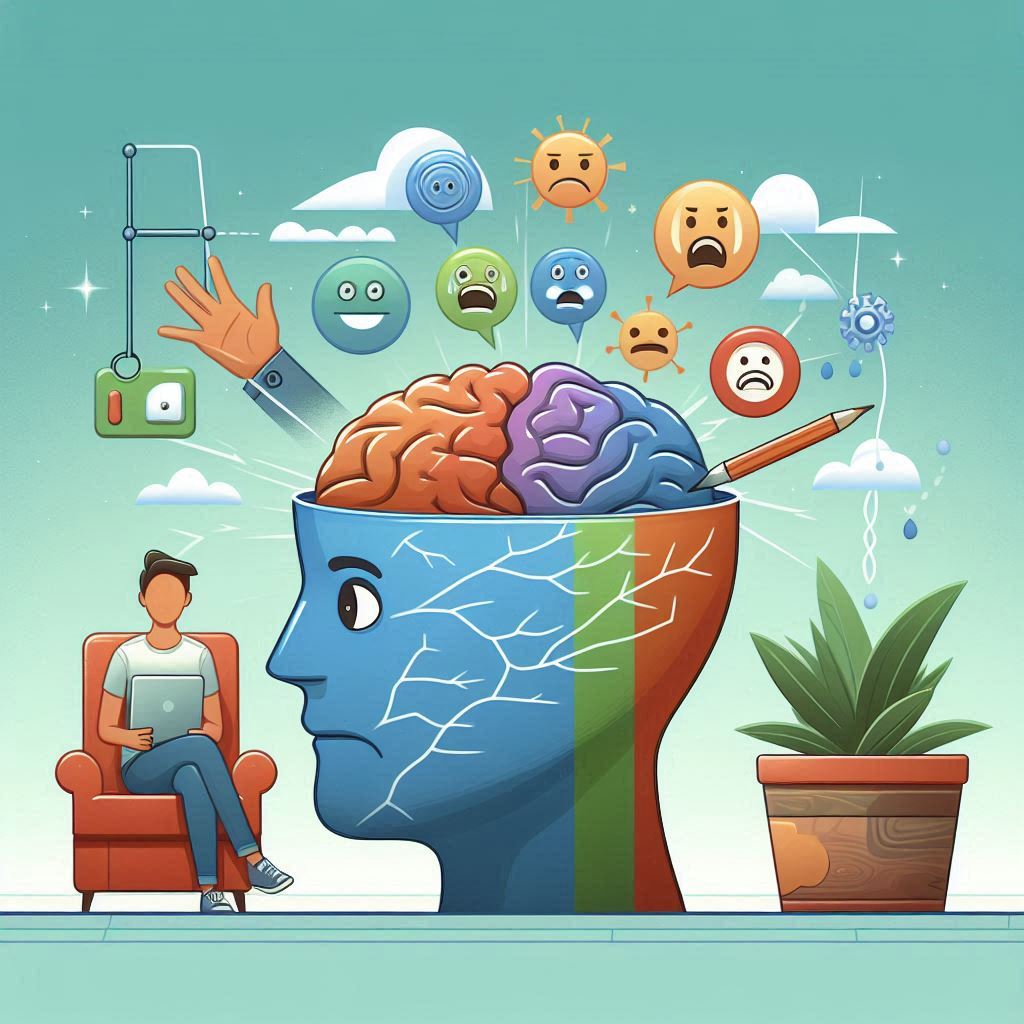Healthy habits are essential for overall well-being, improving physical health, mental clarity, and emotional stability. Consistent choices like nutritious eating, adequate sleep, stress management, and hydration lay a foundation for long-term health and vitality, preventing chronic diseases and enhancing your quality of life.

Balanced Diet
A balanced diet provides essential nutrients for your body. Include a variety of fruits, vegetables, whole grains, and lean proteins in your meals. This helps boost your immune system, maintain a healthy weight, and avoid processed foods and sugary snacks.

Regular Exercise
Aim for at least 30 minutes of moderate exercise most days. Regular physical activity improves cardiovascular health, strengthens muscles, and enhances mental well-being. It also reduces the risk of chronic diseases like obesity and heart disease.

Hydration
Drink at least 8 glasses of water daily to support digestion, circulation, and temperature regulation. Proper hydration maintains energy levels, improves skin health, and flushes out toxins. Avoid sugary drinks and excessive caffeine.

Adequate Sleep
Aim for 7-9 hours of sleep each night for physical and mental recovery. Quality sleep enhances cognitive function and overall well-being. Establish a regular sleep schedule and create a restful environment to avoid stress and concentration issues.

Stress Management
Practice stress-relief techniques like meditation, deep breathing, and mindfulness to maintain mental and emotional health. Regular physical activity, adequate sleep, and a healthy diet also help reduce stress and prevent related health issues.

Achieving Peak Wellness: Harmonizing Mind and Body for Lasting Health
Achieving peak wellness involves aligning your physical, mental, and emotional well-being for a balanced, fulfilling life. By nurturing both the mind and body through healthy nutrition, regular exercise, mindfulness, and stress management, you can create lasting harmony. This guide offers practical steps to help you prioritize self-care and elevate your overall quality of life, fostering sustainable wellness that lasts.

The Power of Wellness: Embarking on a Path to Sustained Health and Inner Peace
The power of wellness lies in achieving a balance between mind, body, and spirit, creating a foundation for sustained health and inner peace. By embracing practices like mindful living, proper nutrition, and physical activity, you can embark on a transformative journey toward holistic well-being. This article guides you on how to make lasting changes that enhance both your physical and mental health, leading to a more peaceful and fulfilling life.

How to Build Resilience: Strategies for Coping with Life’s Challenges
In a world filled with challenges, building resilience is essential for navigating life’s ups and downs. This article offers practical strategies to enhance emotional strength and cope with adversity. From cultivating a positive mindset to fostering supportive relationships, discover how these actionable tips can help you bounce back stronger and maintain well-being in the face of difficulties.

The Role of Gratitude in Mental Health: Daily Practices for Positivity
Explore the transformative power of gratitude and its profound impact on mental health. This article delves into daily practices that foster positivity and enhance emotional well-being. Learn how incorporating gratitude into your routine can shift your mindset, reduce stress, and improve your overall quality of life. Discover actionable tips to cultivate gratitude and make it a meaningful part of your daily life.

Revitalizing Your Health: Essential Lifestyle Changes for Effective Diabetes Management
Revitalizing your health involves making essential lifestyle changes that can significantly improve diabetes management. This article explores practical strategies, including dietary adjustments, regular physical activity, and stress management techniques. By adopting these habits, individuals with diabetes can enhance their overall well-being, stabilize blood sugar levels, and reduce the risk of complications. Discover how small, intentional changes can lead to a healthier, more fulfilling life while effectively managing diabetes.

The Role of Emotional Awareness in Preventing Panic Attacks
Panic attacks are an overwhelming experience that can strike without warning, leaving individuals feeling helpless, out of control, and overwhelmed by intense fear. These attacks often involve rapid heart rate, shortness of breath, dizziness, a sense of impending doom, and a profound emotional sense of fear or distress.

Techniques for Preventing Escalating Anxiety and Panic
Emotional regulation is a key skill that involves understanding and managing your emotional responses in a way that promotes psychological well-being. The inability to regulate emotions can lead to intensified feelings of anxiety, making it more difficult to cope with stressors and navigate daily life.

Self-Compassion as a Tool to Reduce Anxiety
Negative thoughts about one’s perceived inadequacies and failures are common during periods of heightened anxiety, which leads to further emotional turmoil. Self-compassion, a concept popularized by psychologist Kristin Neff, is a psychological practice that involves treating oneself with kindness, understanding, and care during difficult times.

Mastering Emotions: Harnessing the Power of Mindfulness
Emotions are an integral part of human experience, shaping our perceptions, decisions, and relationships. However, they can also become overwhelming and difficult to manage, particularly when they arise in stressful or challenging situations. Emotional regulation is the ability to monitor, evaluate, and modulate emotional responses to achieve a desired outcome.

Prevention of Panic Attacks Through Cognitive Reframing and Emotional Intelligence
Stressful situations, such as high-pressure work environments, personal crises, or ongoing health issues, can activate intense emotional reactions like anxiety, fear, anger, and frustration. In extreme cases, these emotions can spiral out of control, leading to overwhelming panic attacks.

Bounce Back Stronger: Building Emotional Resilience to Overcome Life’s Challenges
Building emotional resilience to cope with stress is a fundamental skill in navigating the challenges of life. Resilience is the ability to adapt well to adversity, trauma, tragedy, threats, or significant sources of stress. It is not a trait that people either have or do not have. Rather, it involves behaviors, thoughts, and actions that can be learned and developed over time.

The Connection Between Emotional Intelligence and Anxiety Management
Anxiety is a complex and often overwhelming emotion, typically characterized by feelings of unease, nervousness, or fear. It is a natural response to stress, but when it becomes chronic or excessive, it can significantly interfere with one’s ability to lead a healthy and fulfilling life. Anxiety manifests in a variety of ways, from generalized anxiety disorder (GAD) to panic attacks, and can present both psychological and physical symptoms.

Breathing Techniques and Emotional Intelligence for Anxiety Relief
Anxiety disorders, characterized by excessive worry, fear, and nervousness, affect millions of people worldwide, leading to significant distress and impairment in daily functioning. Among the various strategies available for managing anxiety, controlled breathing exercises have emerged as one of the most effective methods for calming the mind, regulating emotions, and preventing panic attacks.

Creating a Calm Environment Through Emotional Awareness
One of the most effective strategies for reducing anxiety and creating a peaceful atmosphere—whether at home or in the workplace—is emotional awareness. By cultivating an understanding of your emotional state, you can create an environment that promotes calmness, enhances emotional regulation, and reduces the likelihood of panic attacks.

Emotional Intelligence in High-Stakes Situations: How to Stay Calm Under Pressure
In an increasingly fast-paced world, high-stakes situations are inevitable. Whether you’re standing in front of an audience delivering a public speech, navigating the tension of a job interview, or responding in the midst of an emergency, the pressure to perform can often feel overwhelming. It’s during these moments of high pressure that emotional intelligence (EI) becomes not just a valuable tool but a life-saving asset.

The Impact of Emotional Intelligence on Sleep and Its Relation to Panic Attacks
Sleep is essential for overall well-being, yet many individuals struggle with sleep-related disorders, including difficulty falling asleep, maintaining restful sleep, or experiencing panic attacks. Emotional regulation, which is a key component of emotional intelligence (EI), plays a crucial role in these sleep disturbances.

The Role of Emotional Boundaries in Preventing Emotional Overload and Panic
Emotional boundaries are a fundamental aspect of mental health and emotional well-being. In the increasingly demanding environments of modern life, individuals are constantly exposed to emotional pressures, whether from work, family, friends, or societal expectations.

Reframing Panic Attacks as Opportunities for Emotional Growth
Panic attacks are often seen as terrifying, uncontrollable experiences that leave individuals feeling helpless and overwhelmed. They are typically associated with intense feelings of fear, anxiety, and a sense of impending doom, which can be both physically and emotionally exhausting.

How Emotional Intelligence Can Help Manage the Fear of the Unknown
The fear of the unknown is one of the most deeply ingrained human fears. It taps into our fundamental need for certainty and control, creating a psychological space where anxiety, worry, and stress can flourish. For many people, this fear is a powerful trigger for panic attacks, feelings of helplessness, and a general sense of being overwhelmed by life’s uncertainties.

Releasing Negative Emotions: How Emotional Intelligence Helps Let Go of Fear
Emotional intelligence (EI) is the ability to recognize, understand, and regulate emotions—both our own and those of others. This skill set is integral to navigating life’s challenges, particularly when dealing with emotions like fear, anxiety, and stress.

Emotional Intelligence and the Gut-Brain Link: A New Approach to Managing Anxiety
In recent years, research on the gut-brain axis has gained substantial attention due to its significant implications for mental health. The gut-brain axis refers to the bidirectional communication system that connects the gut and the brain. This system involves a complex interplay of neural, hormonal, and immune pathways, allowing the gut to influence brain function and vice versa.

Using Emotional Intelligence to Cultivate a Growth Mindset in the Face of Panic
Panic attacks, often characterized by sudden feelings of intense fear or discomfort, are overwhelming and can strike unexpectedly, leaving individuals feeling helpless, confused, and trapped. The physical symptoms—such as rapid heartbeat, shortness of breath, dizziness, and a sense of impending doom—often lead to heightened levels of anxiety and emotional distress. However, there is a way to shift this automatic response to panic by cultivating a growth mindset, supported by emotional intelligence (EI).

Developing Emotional Intelligence in Children and Its Long-Term Impact on Anxiety and Panic
Emotional intelligence (EI), the ability to recognize, understand, manage, and influence emotions—both in oneself and in others—has become an essential framework for understanding human behavior, especially in the context of mental health and well-being. Research has shown that emotional intelligence plays a pivotal role in reducing emotional distress, enhancing interpersonal relationships, and fostering mental resilience.

How Emotional Intelligence Can Help You Decode and Understand Panic Symptoms
Panic attacks are intense episodes of fear that often manifest unexpectedly, with physical symptoms such as heart palpitations, chest pain, shortness of breath, dizziness, and feelings of impending doom. These attacks can be debilitating, significantly impairing one’s ability to function in daily life.

Emotional Intelligence (EI) and Its Relevance to Mental Health
Emotional intelligence refers to the capacity to recognize, understand, manage, and influence emotions. Daniel Goleman’s influential book, Emotional Intelligence (1995), brought this concept into mainstream psychology. He proposed that EI is a critical factor for success, often more so than traditional cognitive intelligence (IQ).

How Fitness Can Boost Self-Esteem and Improve Body Image
In a world where societal standards of beauty and body image are often idealized to unrealistic extremes, individuals struggling with self-worth can find themselves constantly measuring their appearance against these standards. In this context, fitness offers a powerful means of counteracting negative body perceptions and can lead to substantial improvements in mental and emotional health.

Why the ‘Blue Light Effect’ Doesn’t Stop with Phones—It’s in Your TV, Too!
While much attention has been focused on the blue light emitted by phones, fewer people realize that their television screens also emit a similar kind of light, contributing to similar disruptions in sleep.

Creating Screen-Free Zones: The Importance of Physical Spaces for Face-to-Face Interaction
It is nearly impossible to avoid screens in today’s world. Whether for work, entertainment, communication, or education, screens are an integral part of everyday life. Smartphones, tablets, and laptops offer instant access to information and social media, making it easy for people to be constantly connected. For many, the temptation to check notifications, browse social media, or stream videos is irresistible, even when engaged in other activities.

Designating Screen Time for Family Activities: Creating Shared, Purposeful Time for Family
With smartphones, tablets, laptops, and televisions occupying a substantial part of our daily lives, families must consider how to use technology in a way that brings people together instead of driving them apart. One way to accomplish this is by designating specific times for shared screen-based activities that can serve as tools for education, entertainment, and family bonding.

Striking Harmony Between Productivity and Relaxation for Families
The widespread use of digital devices such as computers, tablets, smartphones, and televisions has transformed how families manage their time, communicate, and organize their daily routines. While screens are essential for professional and educational tasks, they also serve as valuable tools for relaxation, entertainment, and socializing.

Modeling Healthy Screen Habits: The Role of Parents and Caregivers
Children and adolescents are highly impressionable and tend to model the behaviors they see from adults. Therefore, parents and caregivers play a vital role in setting an example of healthy screen habits, which includes balancing screen time with offline activities and fostering mindful consumption. By setting the right example, parents can help their children develop positive relationships with technology and screen time.

Understanding Screen Addiction: Warning Signs and How to Address It
Screen addiction is a growing concern in the modern world, especially for children and teenagers. With the widespread use of smartphones, tablets, gaming consoles, and other electronic devices, screen time has become a major part of everyday life.